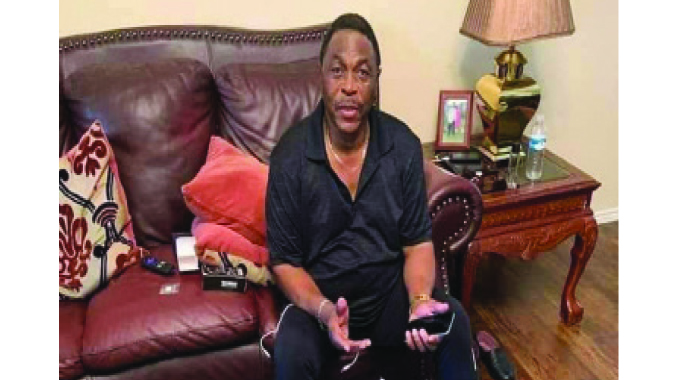
Mzala Tom
Present day Kalanga people of Zimbabwe, Botswana and South Africa are believed to be descendants of part of the Bantu people who migrated down south from the Great Lakes region around AD900.
The early Kalanga ancestors are believed to be the Zhizo farmers whose descendants subsequently established the
Leopard’s kopje culture between AD 420 and 1050 characterised by special stone architecture and decorative pottery.
The Kalanga, Venda and Bolubedu are believed to have established the kingdom of Mapungubwe around 1075-1220 in the area around the confluence of the Limpopo Rivers. The kingdom flourished and attracted many Bantu migrants including the ancestors of modern day Shona groups.
Population growth resulted in the scarcity of land and food. Leadership disputes emerged. This coupled with severe droughts led to the decline of the Mapungubwe kingdom. The population began migrating north to present-day Masvingo where the Great Zimbabwe polity was established.
Some historians posit that this is where the evolution of the Kalanga to Karanga identity happened to some Kalanga who migrated earlier to establish Great Zimbabwe as they became socialised as the Karanga due to the influence of the dominant Mbire clans in the kingdom.
As the great Zimbabwe flourished, more Kalanga, Venda, Pedi, Tsonga and other people groups migrated to become part of the thriving kingdom. Subsequently, the Great Zimbabwe kingdom declined leading to the emergence of the Mutapa kingdom.
The Mutapa kingdom shifted its capital between the Dande and Zambezi valley in present-day northern Zimbabwe. Due to the increased slave trade by the Mutapa, the Kalanga and Venda broke away to establish the Togwa-Buhwa (Butua) kingdom in present day Kame-Khami ruins.
The Kalanga coined the name “Mutapa” meaning a harvester of people in reference to the slave trade. On the other hand, the Mutapa called them the “togwa/torwa” which translated to rebels or outsiders of the Mutapa state.
The Togwa state flourished between 1450 and around 1680. After building Khami, the Kalanga abandoned it in the early 17th century after it was destroyed by a fire and moved to Danangombe. At this point, they were ruled by a prominent army General Mambo Tjibundule.
Tjibundule was a fearsome warrior and military tactician. At the peak of his reign, his kingdom stretched from Makgadikgadi salt pans in the Kalahari desert, to the side of Venda reaching Limpopo and Palapye and Zambezi in the north east.
The 18th century saw the collapse of the multi-ethnic Tjibundule kingdom at the hands of people they named the Lozwi/Rozvi meaning destroyers. The Lozwi/Rozvi were military experts and tacticians who destroyed the Mutapa empire.
They moved to conquer the Tjibundule dynasty.
The Lozwi /Rozvi were a ruling elite of the Moyo totem whose followers were called BaNyai. BaNyai were former soldiers of the Mutapa army who managed to bring it down and repel the Portuguese under the leadership of the Karanga Moyo elite.
The Lozwi /Rozvi were attracted by the wealth and power of the Tjibundule dynasty and planned a total takeover so that they could control the entire present-day Sadc region by taking over the Togwa territories.
The assigned Lozwi /Rozvi ruling class was made up of four main totemic groups the Moyo -Moyondizvo, the Tumbare-Bepe Moyo, the Mavhudzi-Shava and the Shoko-Nerwande. Lozwi /Rozvi was not an ethnic identity but a class identity of the rulers.
The Lozwi /Rozvi defeated Tjibundule under their leader Nechasike. It is said that Tjibundule’s uncle migrated to present day Bulilima-Mangwe after the takeover of Nechasike. Bulilima-Mangwe is a corruption of Bulilima-gwa-Mengwe, meaning Mengwe’s territory.
The Lozwi /Rozvi established a confederacy of chiefdoms under their paramount ruler Changamire Dombo. In the south, they established their rule at Danangombe. Due to the dominant Kalanga population, the Kalanga language remained the lingua franca at the former Togwa territories.
It is at Danangombe that sometime in the late 17th century during the shaking of the Lozwi /Rozvi Empire under the reign of Dombo II one of his three sons Dende broke away from his father to establish his kingdom at Hwange giving birth to the Nambya kingdom.
In the late 17th century the Kalanga majority under Tjilisamhulu I overthrew the Lozwi /Rozvi aristocrats under Dombo II. Another son of Dombo known as Singo crossed the Limpopo River and conquered the Venda and attempted to revive the Lozwi/Rozvi polity at Dzata.
Other Lozwi/Rozvi crossed the Limpopo River and settled among the Venda in the Nzhelele valley where they found earlier Karanga, Kgalaka (Balobedu) living alongside the Venda who were part of the Thovhela sub-state.
In the early 1800s, the now Kalanga controlled Lozwi/Rozvi Empire was attacked by the Zwangendaba, Nxaba, Maseko and Nyamazana Nguni forcing Tjilisamhulu II to flee to Manyanga hills. The Ndebele dealt a final blow by conquering and assimilating the Kalanga and Lozwi/Rozvi.
Finally, some historians have argued that the present day Kalanga language spoken in south western Zimbabwe and north eastern Botswana is the oldest and closest to the dialect spoken by the Zhizo and Leopard’s kopje civilisations from which many dialects were birthed. (source: @RealMzalaTom)


























